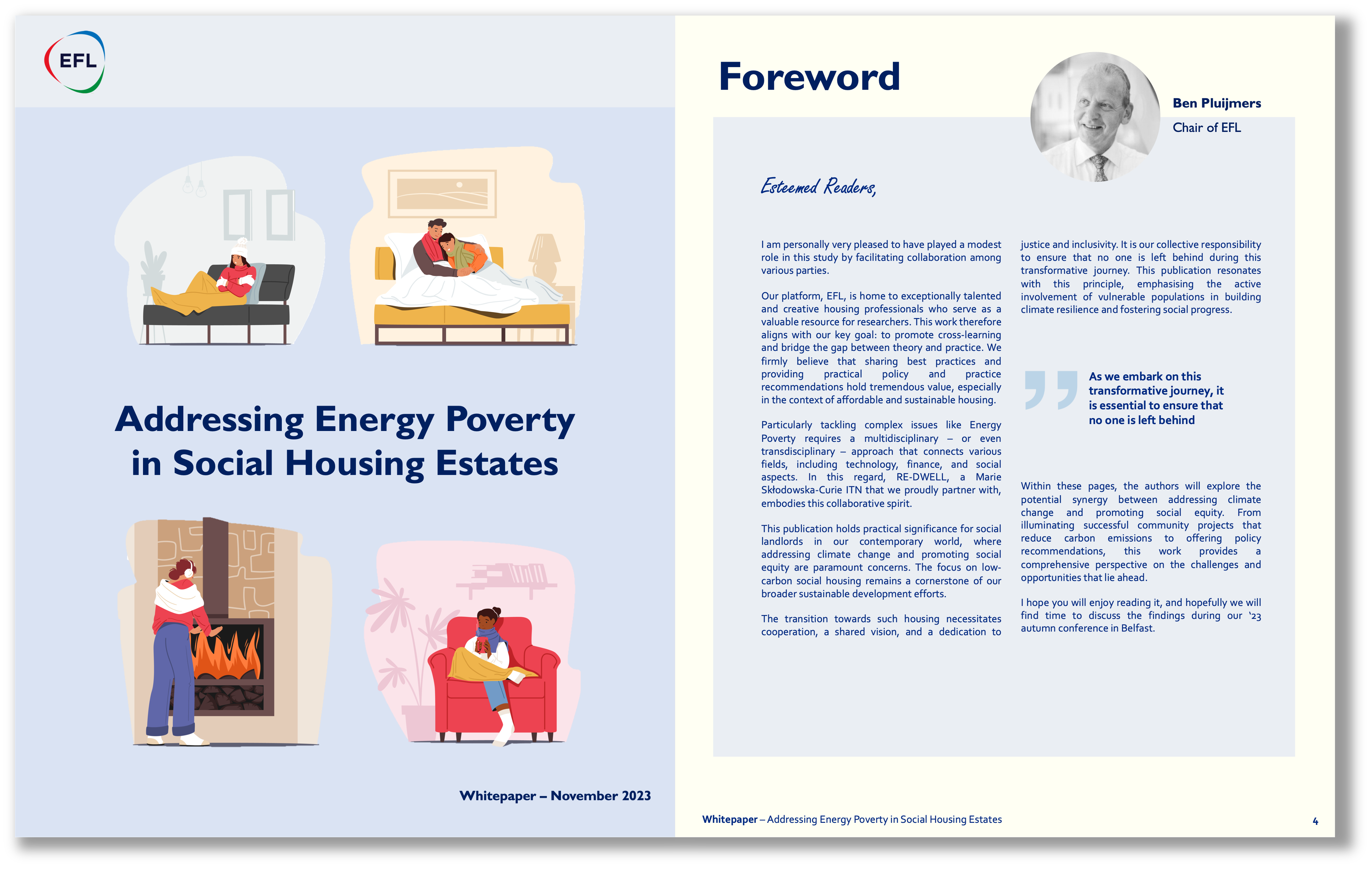Croon, T., Hoekstra, J., &, Dubois, U. (2023, March). Energy poverty alleviation in social housing: Prototyping policies with practitioners. In Diaconu, A. (Ed.) Proceedings of the RE-DWELL Grenoble Conference (pp. 15-18). Pacte Social Sciences Research Centre, University Grenoble Alpes, Grenoble, France.
https://www.re-dwell.eu/activities/conferences/grenoble
Posted on 14-03-2023
The negative consequences of energy poverty have been known for decades, but the sense of urgency and subsequent establishment of policies have substantially differed across countries. One of the reasons mentioned in the literature is that insights from research are not adequately communicated to policymakers and practitioners. In parallel, The body of scholarship on energy poverty measurement has grown rapidly, but its use in practice has hardly been addressed. This project intends to combat this mismatch, by proactively engaging with various housing association professionals across Europe to find out how qualitative and quantitative knowledge on energy poverty can inform retrofit strategies in different policy contexts. It examines the key role of housing associations with a significant share of their predominantly low-income tenants living in energy poverty in the ‘just transition’. Furthermore, it explores how their apparent techno-economic approach to retrofit provision could be altered by organizing focus groups with housing association professionals in France, the UK, and the Netherlands. Professionals from different departments will be urged to discuss whether, and if so why, they consider energvisy poverty to be a policy priority not only from a behavioural perspective but also from a housing quality perspective. We proactively work with them to learn how qualitative and quantitative knowledge on energy poverty can inform alleviation strategies in different policy contexts. The focus groups will be set up as ‘innovation journeys’, with the participants acting as ‘co-researchers’ or ‘codesigners’. First, I will give a brief explanation about energy poverty measurement. Then, assuming that the housing association is properly informed as to which households are most vulnerable, we will collectively explore the potentially alleviating policy interventions available. We will look at opportunities and obstacles regarding finance, staff capacity, and regulations, thus allowing for a comparison between the three countries. While the sessions will have a rather flexible structure, we will ensure that targeted retrofit is at the heart of the discussion (besides e.g. information provision, behavioural change, and rent policy). The study thus uses an abductive approach, ‘prototyping’ possible ways towards a desired policy outcome (energy poverty alleviation). It is an exploratory phase in which new policy interventions can be discovered and provisional guesses can be made concerning their effects.
Blogposts

Collaboration transcending the secondment
Posted on 17-10-2023
Secondments
Read more ->

